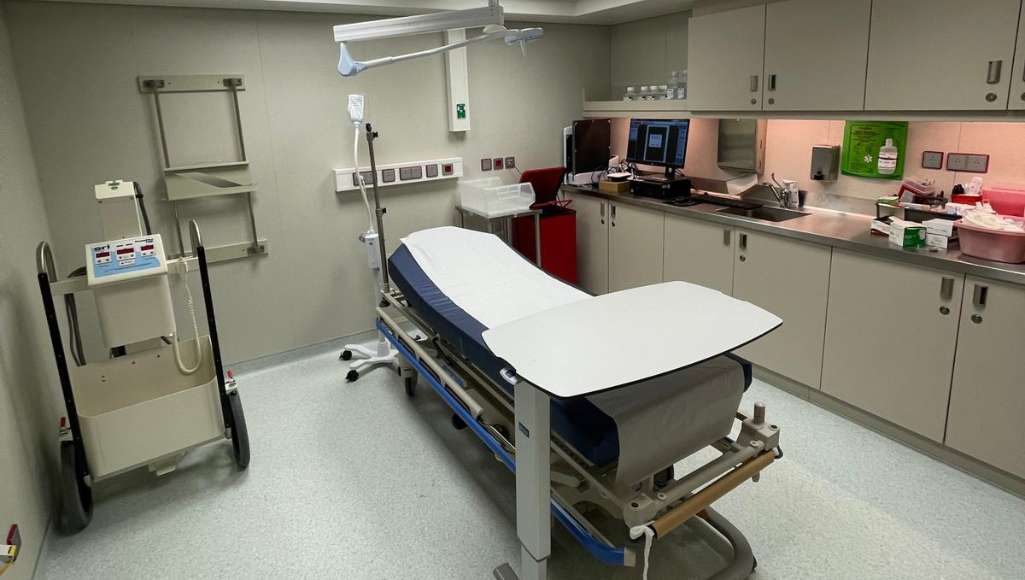
VIKAND is Your Guide to Building Shipboard Medical Facilities
Shipboard medical facilities on a cruise liner must be designed and built to support both the people on board and the company’s operational goals. At any given time, a cruise ship may be travelling in remote waters with thousands of passengers and crew and it must be prepared for emergencies large and small.
In order to deliver high-quality patient care and meet regulatory requirements, shipboard medical facilities must be designed and built to high standards. This is where it can be valuable for cruise operators to partner with a specialised consultant like VIKAND that is skilled in each step of the process, from design and buildout to procuring equipment and supplies, optimising protocols, staffing medical units and more.
Medical Care and Facility Standards at Sea
Between industry associations such as Cruise Line International and governmental regulatory bodies, there are high standards for both shipboard medical facilities and the care they deliver.
A cruise ship medical facility is similar to an ambulatory care unit and must adhere to standards created by the American College of Emergency Physicians. According to the ACEP, the infirmary must have a range of equipment, including wheelchairs, stretchers, backboards, medical-grade oxygen, an EKG machine, a testing lab, two defibrillators, cardiac monitors and more.
Ships must also have a pharmacy stocked with medications for common ailments such as gastrointestinal issues, cardiovascular conditions, respiratory problems, infectious diseases and more, as well as common vaccines.
Most of the time, shipboard medical professionals are called on to treat non-emergency conditions such as flu, norovirus, motion sickness and minor injuries. However, they must also be able to perform minor surgeries, emergency cardiovascular care and other life-saving procedures should the need arise.
Through a combination of telehealth technologies, including digital x-rays and electronic medical records (EMRs), shipboard medical teams can also communicate securely with landside professionals for second opinions, or to consult with them on solutions for serious health conditions or disease outbreaks.
Taking a Phased Approach to Facility Buildouts
For cruise operators engaged in a new build or refurbishment, an experienced consultant can guide them through each phase of the process, including facility design, biomedical equipment planning and sourcing, formulary needs, protocols and procedures, maintenance planning, medical staffing and more:
- Phase 1: The process starts with recommendations for how the new facilities will be laid out, as well as creating budgets for biomedical equipment and formulary needs. As discussed above, a ship must be equipped to handle everything from common illnesses to life-threatening emergencies.
- Phase 2: In this phase, formulary plans are further developed with item lists, quantities and pricing. Vendors are selected for both formulary and biomedical equipment, standard operating procedures are developed, and an electronic medical records (EMR) system is implemented. To optimise their investment, cruise operators must consider not only up-front costs, but long-term maintenance and calibration requirements. This phase is also the time to finalise personnel plans and begin pre-employment medical exams (PEME).
- Phase 3: In the final phase, the cruise ship’s new medical facility is registered with the local authorities and medical positions are filled. New hires go through training in all systems and procedures, including EMRs, SOPs, biomedical equipment, chain of command and more. After leadership orientation and crew training, the final step is quality control, which includes equipment testing and calibration, facility inspections, supply inventories and medical chest certification.
What Cruise Operators Should Look for in a Partner
For the new build process to be successful, cruise operators should make sure their consulting partner has proven experience in several key areas:
- Planning: A new build consultant should offer full project and timeline management, which is critical to developing maritime-specific medical facilities on time and on budget. They should also offer capex forecasts to help provide the operator with long-term budget visibility.
- Buildout: A new build consultant should also provide hands-on oversight during the buildout, from identifying and sourcing the right biomedical equipment and formulary supplies to developing systems and processes that support medical care at sea. These include EMRs, SOPs, outbreak response plans and more.
- Staffing: The final step is choosing and training the best people to operate the new shipboard medical facilities. This is where it will be valuable to work with a team that can source, vet, train and manage experienced medical professionals with real maritime experience.
Long-term Support for Cruise Operators
As a build consultant, VIKAND’s work isn’t over when the ship sets sail. Our value-added services include 24/7 remote biomedical support, yearly equipment inspections and calibration, and ongoing staff training and management. Cruise operators should think of their new build partner as an extension of their team, capable of supporting their broader operational goals throughout the year.
To summarise, a cruise ship’s medical facilities and services must meet rigorous standards. From design and staffing to equipment and supplies, there are hundreds of decisions to consider and requirements to meet. A skilled and experienced new build consultant like VIKAND can bring clarity and control to the entire process, helping cruise operators develop shipboard medical facilities that are ready to meet the challenges of caring for human health, even in the world’s most remote waters.


